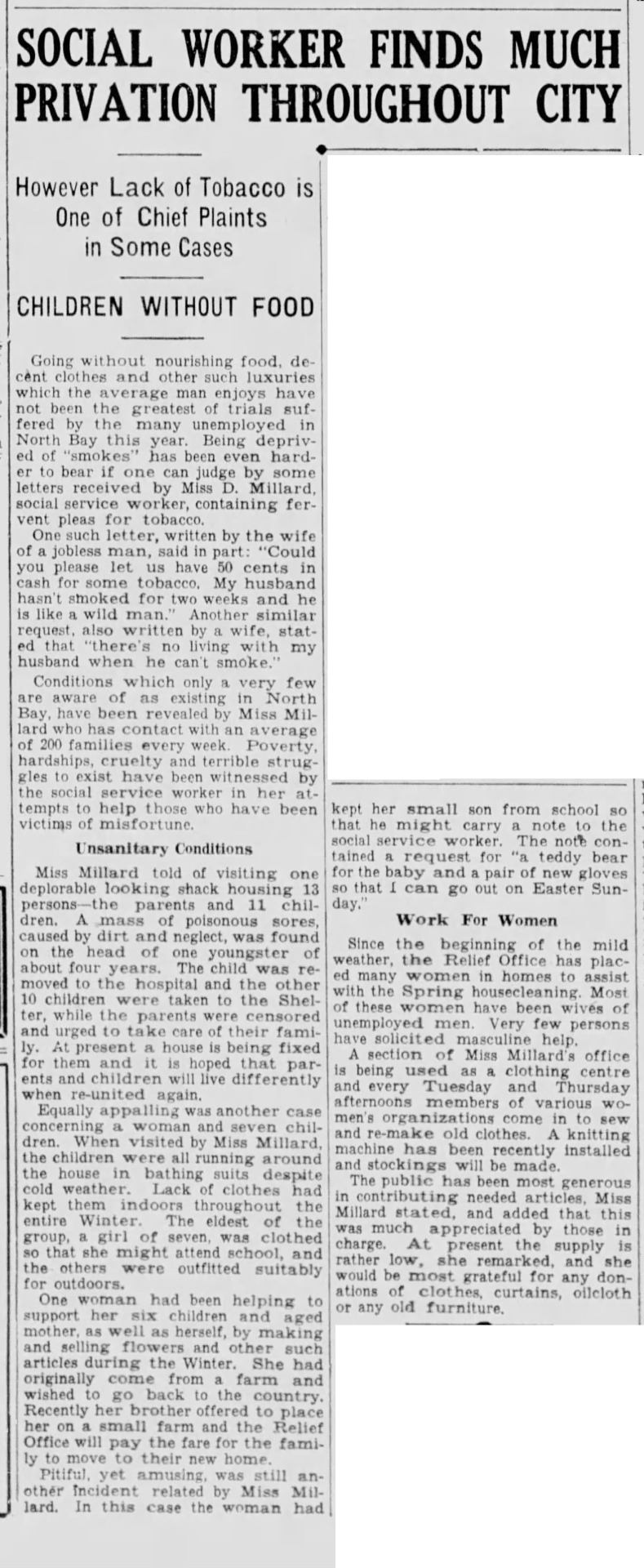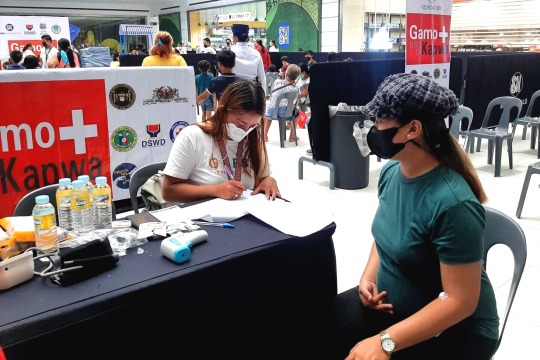#social welfare officer
Text
DSWO Coimbatore Recruitment 2022 Apply Case Worker Vacancy
DSWO Coimbatore Recruitment 2022 Apply Case Worker Vacancy
#govtjobs #upsc #ssc #currentaffairs #gk #ssccgl #ias #jobs #governmentjobs
Coimbatore Social Welfare Notification Offline Form 2022 – Case Worker Post Eligibility Salary, Admit Card, Exam Date and Notification – Social Welfare Are Invited Offline Application Form Coimbatore Social Welfare Recruitment 2022 (Case worker) Interested Candidate Completed All Eligibility Criteria and Offline Application Form Before Apply Offline Application form Please Read Full Notification…

View On WordPress
#coimbatore social welfare office recruitment 2021#district social welfare job responsibility#district social welfare kokrajhar#district social welfare office#district social welfare officer#district social welfare officer salary#district social welfare recruitment 2022#DSWO Coimbatore Recruitment 2022 Apply Case Worker Vacancy#e district social welfare application status#office assistant#office assistant jobs#office work#social welfare application status#social welfare officer
0 notes
Text
கோயம்புத்தூர் மாவட்ட சமூக நல்வாழ்வு துறையில் தேர்வே இல்லாமல் வேலை..!
கோயம்புத்தூர் மாவட்ட சமூக நல்வாழ்வு துறையில் தேர்வே இல்லாமல் வேலை..!
#govtjobs #upsc #ssc #currentaffairs #gk #ssccgl #ias #jobs #governmentjobs
கோயம்புத்தூர் மாவட்ட சமூக நல்வாழ்வு துறையின் பின் வரும் Case Worker பணிகள் நிரப்புவதற்கான அறிவிப்பு வெளியாகியுள்ளன. தமிழ்நாடு அரசு இந்த அதிகாரப்பூர்வ அறிவிப்பினை வெளியிட்டுள்ளது. சமூக நல்வாழ்வு துறை பணிக்கு விண்ணப்பிக்க ஆர்வமுள்ளவர்கள் 07/12/2022 முதல் 15/12/2022க்குல் அஞ்சல் மூலமாக விண்ணப்பிக்கவும். இப்பணிக்கு விண்ணப்பிக்கும் நபர்கள் விண்ணப்பிக்கும் முன்பு கீழ்க்கண்ட கல்வித் தகுதி , வயது விவரம்…

View On WordPress
#coimbatore social welfare office recruitment 2021#district social welfare job responsibility#district social welfare kokrajhar#district social welfare office#district social welfare officer#district social welfare officer salary#district social welfare recruitment 2022#DSWO Coimbatore Recruitment 2022 Apply Case Worker Posts#e district social welfare application status#office assistant#social welfare application status#social welfare department recruitment 2020#social welfare officer
0 notes
Text
Social Welfare Officer at TANROADS – Tanga
Social Welfare Officer at TANROADS – Tanga
TANZANIA NATIONAL ROADS AGENCY (TANROADS) is a Semi-Autonomous Agency under the Ministry of Works, Transport and Communications established on July 1, 2000 and is responsible for the day-to-day management of the Tanzania Mainlands Trunk and Regional Roads Network and Construction of Airports. Its primary functions include Management of Maintenance and Development Works, Operations of Road…
View On WordPress
0 notes
Photo

“SOCIAL WORKER FINDS MUCH PRIVATION THROUGHOUT CITY,” North Bay Nugget. April 23, 1932.
-----
However Lack of Tobacco is One of Chief Plaints in Some Cases
----
CHILDREN WITHOUT FOOD
----
Going without nourishing food decent clothes and other such luxuries which the average man enjoys have not been the greatest of trials suffered by the many unemployed in North Bay this year being deprived of “smokes” has been even harder to hear, if one can judge by some letters received by Miss D. Millard, social service worker, containing fervent pleas for tobacco.
One such letter, written by the wife of a jobless man said in part: “Could you please let us have 50 cents In cash for some tobacco. My husband hasn't smoked for two weeks and he is like a wild man." Another similar request also written by a wife stated that “there's no living with my husband when he can't smoke.”
Conditions, which only a very few are aware of as existing in North Bay, have been revealed by Miss Millard who has contact with an average of 200 families every week. Poverty, hardships, cruelty, and terrible struggles to exist have been witnessed by the social service worker in her attempts to help those who have been victims of misfortune.
Unsanitary Conditions
Mrs. Millard told of visiting one deplorable looking shack housing 13 persons— the parents and 11 children. A mass of poisonous sores, caused by dirt and neglect, was found on the head of one youngster of about four years. The child was removed to the hospital and the other 10 children were taken to the Shelter, while the parents were censored and urged to take care of their family. At present, a house is being fixed for them and it is hoped that parents and children will live differently when re-united again.
Equally appalling was another case concerning a woman and seven children. When visited by Miss Millard, the children were all running around the house In bathing suits, despite cold weather. Lack of clothes had kept them indoors throughout the entire winter. The eldest of the group, a girl of seven, was clothed so that she might attend school and the others were outfitted suitably for outdoors.
One woman had been helping to support her six children and aged mother as well as herself by making and selling flowers and other such articles during the Winter. She had originally come from a farm and wished to go back to the country. Recently her brother offered to place her on a small farm and the Relief Office will pay the fare for the family to move to their new home.
Pitiful, yet amusing was still another incident related by Miss Millard. In this case the woman had kept her small son from school no that ha might carry a note to the social service worker. The note contained a request for “a teddy bear for the baby and a pair of new gloves so that I can go out on Easter Sunday."
Work For Women
Since the beginning of the mild weather, the Relief Office has placed many women in homes to assist with the Spring housecleaning. Most of these women have been wives of unemployed men. Very few persons have solicited masculine help.
A section of Miss Millard's office is being used as a clothing centre and every Tuesday and Thursday afternoon a members of various women's organizations come in to sew and re-make old clothes. A knitting machine has been recently Installed and stockings will be made.
The public has been most generous in contributing needed articles, Miss Millard stated and added that this was much appreciated by those in charge. At present the supply is rather low, she remarked, and she would be most grateful for any donation of clothes, curtains, oilcloth or any old furniture.
#north bay#social worker#social work#relief department#relief officer#charitable philanthropy#welfare as social control#administration of poverty#poverty relief#poverty in canada#great depression in canada
4 notes
·
View notes
Text
Do little things that make you happy. In this profession, we talk so much about self-care as a broad thing-do a hobby, journal, spend time with your family. But we don’t talk about the little things. I bought a gaming keyboard. It lights up. It’s mechanical so it has tactile feedback. I got the blue switches, so it makes satisfying clicky sounds. And it lights up! It makes my mountain of paperwork so much more enjoyable. And I cover all I can in bright colors to stave off the boredom of the office gray.
It saves my sanity.



#child welfare#social work#foster care#social justice#psychology#gaming keyboard#colorful#office#work
0 notes
Text
SM Malls in CAMANAVA Wrap Up the Year with ChriSmiles
SM City Grand Central, SM Center Sangandaan, and SM City Valenzuela capped off the year with their annual ChriSMiles project. Spearheaded by the Human Resources Department of each mall, ChriSMiles is a employee volunteerism initiative designed to bring smiles to the faces of children while spreading holiday cheer throughout the community.
In Caloocan, children from Tahanang Mapagkalinga Social…

View On WordPress
#and Jack Adventure#ChriSMiles#City Social Welfare Officer Regina Embalsado#Quantum#SM Center Sangandaan#SM ChriSMiles#SM Cinema#SM City Grand Central#SM City Valenzuela#SM Super#SM Supermalls#Tahanang Mapagkalinga Social Development Center#Tom&039;s World
0 notes
Text
Godda's DSWO suspended : सावित्रीबाई फुले किशोरी योजना का लाभ नहीं देने के आरोप में गोड्डा की डीएसडब्ल्यूओ निलंबित
Ranchi: राज्य सरकार ने जिला समाज कल्याण पदाधिकारी (DSWO) गोड्डा अनीशा कुजूर को निलंबित कर दिया है। उनके खिलाफ सावित्रीबाई फुले किशोरी समृद्धि योजना की कुछ लाभार्थी बालिकाओं द्वारा राज्य के मुख्यमंत्री हेमंत सोरेन के समक्ष शिकायत की गई थी कि उन्हें उक्त योजना का लाभ प्राप्त नहीं हो रहा है। मुख्यमंत्री ने पूरे मामले को गंभीरता से लिया था और इसकी जांच का आदेश दिया था।
सावित्रीबाई फुले किशोरी…

View On WordPress
#District Social Welfare Officer (DSWO) Godda#Godda News#JharkhandNews#The state government has suspended
0 notes
Text
Las Piñas City’s indigent senior citizens benefit from social pension cash pay-out
Recently in the City of Las Piñas, indigent senior citizens benefited from the cash pay-out organized by the City Social Welfare and Development Office (CSWDO), the City Government announced via social media. The cash pay-out happened in Barangay Pilar Village and was attended by Vice Mayor April Aguilar.
To put things in perspective, posted below is an excerpt from social media post of the City…

View On WordPress
#Aguilar#April Aguilar#April Aguilar-Nery#Asia#Barangay Pilar Village#Blog#blogger#blogging#City Government of Las Piñas#City of Las Piñas#City Social Welfare and Development Office (CSWDO)#elderly#Facebook#geek#governance#Las Piñas#Las Piñas City#Metro Manila#National Capital Region (NCR)#NCR#Philippines#Philippines blog#politics#public service#Senior Citizens#social media#South Metro Manila#South Snippets#Southeast Asia#Southies
0 notes
Text
.
#don’t reblog just let me yell into the void#so yeah i‘m on sick leave for over a year and today was the last straw. something in me kind if shattered.#the system here is so righed that idk what else i can do#i fell through all the governmental institutions that were supposed to help me‚ not play hot potato with me#so we got the disabled insurance. rn they only can provide me work rehabilitation programs and they will only start looking into disability#pension when you have been sick/ on sick leave for 2 years. after one year on sick leave‚ the workplace can legally fire you which they did.#so‚ the work insurance is supposed to pay me (for 2years)‚ but they had a insurance psychologist declaring me healthy#not to mention that the whole appointment was a disaster and i had a meltdown right after but on his report#they decided i‘m not sick and not eligible for insurance money#so i‘m jobless‚ unemployed and sick. so i go to the unemployment office! and they didn’t pay me! bc i‘m only eligible for unemployment money#if i am «marketable» as a work force#which i‘m obviously not! i‘m on full time sick leave!#and now i have to go to the social welfare office and beg and hope they find me eligible for at least that#but i can’t get married or maybe even move in with my partner bc otherwise they would have to support me….#i‘m just….i feel played. i feel like i was being made fun of for being honest and trying and standing my ground.#and today my card got declined. i have absolutely no more money.#fuck shit bitch ass system#i HATE IT#I HATE IT HERE#i just want to be ok i want to be able to work again but you really push me in a fucking corner#how am i supposed to get better when you make my life worse and harder????#FUUUUUUCK
1 note
·
View note
Text
TN SOCIAL WELFARE DEPARTMENT RECRUITMENT 2023 | MADURAI SOCIAL WELFARE GOVT JOB
social welfare department recruitment 2022 official website, social welfare recruitment 2022 TN, tamil nadu welfare department recruitment 2022, district social welfare officer recruitment 2022, madurai social welfare department recruitment 2022, www
social welfare department recruitment 2022 official website, social welfare recruitment 2022 TN, tamil nadu welfare department recruitment 2022, district social welfare officer recruitment 2022, madurai social welfare department recruitment 2022, www tn gov in social welfare application, tnpsc social welfare department, social welfare recruitment 2022, madurai social welfare department…

View On WordPress
#district social welfare officer recruitment 2022#madurai social welfare department recruitment 2022#social welfare department recruitment 2022#social welfare department recruitment 2022 official website#social welfare official website#social welfare recruitment 2022#social welfare recruitment 2022 TN#tamil nadu welfare department recruitment 2022#tnpsc social welfare department#www tn gov in social welfare application
0 notes
Text
“From ancient times in has been presumed that prisoners would be given employment when this was profitable or convenient to their captors. They have been put to work in gangs on public buildings, roads, in the galleys and elsewhere, as this has suited public convenience or profit, or for the purposes of punishment. Benefit or advantage to the prisoner has rarely, until recently, been considered; in fact, his treatment has often been directly contrary to his good. Idleness was the lot of many, only relieved by the treadmill or similar contrivances for the carrying out of the sentence which included the phrase "with hard labour." In the county jails of Ontario, apart from cooking, cleaning, etc., idleness is the rule, though in winter, snow may be shovelled, and in the summer some road-making and gardening may be done, and in two or three jails some other work is carried on for the counties concerned. Of course in this Province the jails are merely used for temporary detention or very short terms.
During the last half of the past century in Great Britain, the United States, Canada and elsewhere, work was increasingly alloted to prisoners for the triple purposes of lessening the cost of maintenance to the taxpayer, the improvement and upkeep of the property, and also for the health of the prisoner, the idea of work as punishment operating less and less except in rare cases. Fifty years ago, prison labour was (and is even yet, in too many of the American States, about twenty) let by contract at a small sum per day which was devoted to reducing the cost of prison upkeep. This had certain financial advantages to the state and showed that many prisoners could be productively employed, but the objections to it are very serious and the pressure of enlightened public opinion and of free labour is compelling governments to discontinue it. However, it is clear that with the passing of the contract system other work must be devised for prisoners to save the cost of upkeep of institutions and to prevent the degenerating results of idleness. This is a problem that is now acutely faced in the United States since the passing of the Hawes-Cooper Bill, which in a year or two will practically eliminate contract prison labour in the United States. The prison contract system has not been in operation in Ontario for many years.
But an additional object in the employment of prisoners has for some years been demanded by an increasing section of the public. Until recently, the prisoner’s family or dependants could go to the devil so far as the public cared. Officialdom certainly no interest. The man had broken the law and had to be punished by imprisonment. If his dependants suffered it could not be helped. Friends, philanthropic agencies, churches and municipalities might help the innocent dependants if they pleased, but it was held that the punishment of the prisoner must not be lessened nor the burden to the state increased because others were suffering also. The fallacy of this contention eventually became so clear that in a number of the states of the American Republic, experiments were made in the employment of prisoners at productive labour and the crediting of "wages" to the prisoner for his dependants. After a good many years of trial this payment of "wages" has practically become a settled policy in some institutions.
There are, however, some serious difficulties and objections to it. If F. and P. have wives and families and are both out of work and in want, and P. finds that by committing a crime, he may be successful in getting money, or if unsuccessful, he and his family are supported by the state, will not F. be tempted to follow P’s example, or feel grave injustice at the spectacle of a lawbreaker and his family being aided while honest persons are left to suffer? Furthermore, while it is clear that the state could, if it wished, pay a bonus or gratuity to anyone, and while it may be reasonably contended in certain cases that such a bonus or gratuity should be paid out of the public funds to the dependants of prisoners, a real wage can only be economically sound and possible if it is a fair recognition and return for actual net value given. Whether and what wages can be paid to prisoners will depend, therefore, mainly on the following:
The prisoner's physical and mental ability and his attitude.
The availability of employment suited to his abilities.
The length of the term for which the prisoner will actually remain inside the institution and at a particular job which he has been trained to perform efficiently.
The market and demand for his products.
The cost of handling the product.
The cost of housing, feeding and custody; and depreciation and repairs of building and equipment.
The interest on capital invested in the plant and material.
Possibly the first item is the most important but all are closely related. On them all depends whether a wage can be economically paid and if so, how much, or whether the defects and unfortunate attitude of the prisoner and the overhead charges are such that he is and will remain a financial loss to the institution.
An examination of the annual reports concerning the persons committed to the five Provincial Reformatories or Industrial Farms of Ontario and to the two Toronto Municipal Farms show that about 10% could neither write nor read, about one-third had no trade, and a large number of others who were classed as mechanics or agriculturists were not really skilled workers at all. In other words the great majority of the inmates of our institutions are practically untrained and their economic value is by no means high, even as free men.
After a good many years' association with prisoners, though I have found many very likeable men among them, some highly capable and intelligent, and not a few decent and in many respects reliable; I think it is safe to say that a large number are not dependable (for mental, moral or physical reasons) and the great majority are not economically of very great value, being untrained, and not having the right attitude toward public service. It would, I believe, be safe to say that of the prisoners mentioned in the Deputy Provincial Secretary's reports, two-thirds lack the ability and attitude which would make the payment of wages to them economically possible under any practicable internal custodial conditions, and when the actual intra-mural custodial conditions are taken into account the number which might possibly be paid wages on a sound economic basis is still less. Another important feature of the problem is that usually over half of those convicted in a year in Ontario are given sentences of three months or less and an increasing number receive indeterminate sentences.
These facts, without any others, show how difficult it would be to attempt to pay wages to non-penitentiary prisoners in Ontario on any sound basis except in occasional cases. The problem of penitentiary long-term prisoners is, of course, another matter, not am I here dealing at all with the question as to whether the province should undertake to assist the dependants of its prisoners out of the public purse. That is also another matter and would involve a revision of a past policy which places dependents upon municipalities rather than upon the Province. However, the Ontario Extra Mural Employment System with which this report deals is based upon the assumption that whether the payment of gratuities to dependants of prisoners is proper or improper, it is certainly undesirable if it can be avoided.
In the Provincial institutions of Ontario a creditable effort has been made to use the labour of inmates to the physical and mental advantage of prisoners and public. In the Ontario Reformatory at Guelph for example, work is done each year by prisoners in weaving, farming, packing, canning and turning out other products to be used by provincial institutions, which reduces the expense of upkeep by three or four hundred thousand dollars. A very creditable figure indeed. But the full aggregate annual cost of that reformatory is twice that sum. This showing of such a well-managed institution demonstrates the practical economic difficulties in the way of paying wages to intra mural prisoners. If reformatory products were more extensively used by provincial departments which now buy from the regular markets, the taxpayers would undoubtedly benefit; but even then the feasability of a general payment of wages would be by no means sure. If certain industries in the reformatory, such as the abattoir at Guelph or the Brick and Tile Plant at Mimico for example, and certain selected inmates were alone to be considered, the matter would be somewhat simpler and less difficult of solution. It might be worth while to make a definite experiment of a "one industry" place like Mimico for a few years as a wage-paying institution, with carefully selected prisoners. But the full institutional overhead of the Province should really be included and all the institutions and prisoners considered together. The taking out of this institution and these selected prisoners would increase the deficit on the rest. The apparent settled impossibility in Ontario of the sale of the products of prison labour in the open market, and the failure up to the present of an adequate use of prison labour for the needs of provincial institutions and departments, makes it impossible as yet to use prison labour to its full economic extent even if its full value were much higher than it is.”
- Alfred E. Lavell, Report of the Commissioner For Extra Mural Employment of Prisoners For Ten Years, to October 31, 1930. Toronto: King’s Printer, 1931. p. 4-6
#extra mural employment#alfred e. lavell#probation officer#convict labour#penal labour#prison industries#prison industrial complex#employment of prisoners#ontario prisons#ontario reformatory#guelph reformatory#mimico reformatory#county jail#support to families of the incarcerated#family support#birth of the welfare state#welfare as social control#work will set you free#primary document#research quote#canadian prison history
1 note
·
View note
Text
[“Poverty is embarrassing, shame inducing. Misery (misère), the French sociologist Eugène Buret once remarked, “is poverty felt morally.”
You feel it in the degradation rituals of the welfare office, where you are made to wait half a day for a ten-minute appointment with a caseworker who seems annoyed you showed up. You feel it when you go home to an apartment with cracked windows and cupboards full of cockroaches, an infestation the landlord blames on you. You feel it in how effortlessly poor people are omitted from movies and television shows and popular music and children’s books, erasures reminding you of your own irrelevance to wider society. You may begin to believe, in the quieter moments, the lies told about you. You avoid public places—parks, beaches, shopping districts, sporting arenas—knowing they weren’t built for you.
Poverty might consume your life, but it’s rarely embraced as an identity. It’s more socially acceptable today to disclose a mental illness than to tell someone you’re broke. When politicians propose antipoverty legislation, they say it will help “the middle class.” When social movement organizers mobilize for higher wages or housing justice, they announce that they are fighting on behalf of “working people” or “families” or “tenants” or “the many.” When the poor take to the streets, it’s usually not under the banner of poverty. There is no flag for poor rights, after all.
Poverty is diminished life and personhood. It changes how you think and prevents you from realizing your full potential. It shrinks the mental energy you can dedicate to decisions, forcing you to focus on the latest stressor—an overdue gas bill, a lost job—at the expense of everything else. When someone is shot dead, the children who live on that block perform much worse on cognitive tests in the days following the murder. The violence captures their minds. Time passes, and the effect fades until someone else is dropped.
Poverty can cause anyone to make decisions that look ill-advised and even downright stupid to those of us unbothered by scarcity. Have you ever sat in a hospital waiting room, watching the clock and praying for good news? You are there, locked on the present emergency, next to which all other concerns and responsibilities feel (and are) trivial. That experience is something like living in poverty. Behavioral scientists Sendhil Mullainathan and Eldar Shafir call this “the bandwidth tax.” “Being poor,” they write, “reduces a person’s cognitive capacity more than going a full night without sleep.” When we are preoccupied by poverty, “we have less mind to give to the rest of life.” Poverty does not just deprive people of security and comfort; it siphons off their brainpower, too.”]
matthew desmond, from poverty: by america, 2023
2K notes
·
View notes
Text
WKH Social Welfare Recruitment 2022: Protection Officer Vacancy
WKH Social Welfare Recruitment 2022: Protection Officer Vacancy
WKH Social Welfare Recruitment 2022: The Departmental Selection Committee (ICPS) West Khasi Hills District, Nongstoin has released an employment notification for the recruitment of Protection Officer Vacancy.
The last date for submission of the application is 20th July 2022.
Interested and Eligible Candidates may apply here. More details about the recruitment are provided below.
Post Name:-…

View On WordPress
0 notes
Text
SM Foundation Marks 1st Medical Mission at SM City San Jose Del Monte since Pandemic
SM Foundation Marks 1st Medical Mission at SM City San Jose Del Monte since Pandemic
In collaboration with the City Health Office (CHO) and City Social Welfare and Development Office (CSWDO), SM Foundation through SM City San Jose del Monte conducted its first medical mission since the outbreak of the Covid19 pandemic.
SM Foundation and its partners provide basic services to the residents of San Jose del Monte. The community service comprised of a medical and dental checkup,…

View On WordPress
#City Health Office#City Social Welfare and Development Office#SM City San Jose del Monte#SM Foundation
0 notes
Text
Training to help caregivers maintain mental health | News
Training to help caregivers maintain mental health | News
PLATTSBURGH — The Clinton County Office for the Aging is offering a Caregiver Training session on June 14 from 10:30 a.m. to 11:30 a.m.
Caregivers who help a loved one, friend, or neighbor can learn “How to Maintain Your Mental Health while Caregiving” from presenter Valarie Drown, director of the Alzheimer’s Disease Support Initiative, at SUNY Plattsburgh.
VIA ZOOM
The program will be offered…

View On WordPress
#Alzheimer#caregiver#caregivers#caregiving#clinton county office#Health#Maintain#medicine#mental#News#session#social service#training#Welfare#work
0 notes
Text
Las Piñas City government releases cash aid to local rice retailers
Recently in Las Piñas City, the City Government released cash aid to the local rice retailers to support them in coping with the rising costs in their line of business, according to a Manila Bulletin news report. The distribution was led by Mayor Imelda Aguilar.
To put things in perspective, posted below is an excerpt from the Manila Bulletin news report. Some parts in boldface…
Las Piñas City…

View On WordPress
#agriculture#Aguilar#Blog#blogger#blogging#business#capitalism#Carlo Carrasco#City Government of Las Piñas#City of Las Piñas#City Social Welfare and Development Office (CSWDO)#Department of the Interior and Local Government (DILG)#DILG#economics#economy#food#governance#government#Imelda Aguilar#jobs#journalism#Las Piñas#Las Piñas City#Manila Bulletin#Mayor Aguilar#Metro Manila#National Capital Region (NCR)#NCR#news#Philippines
1 note
·
View note